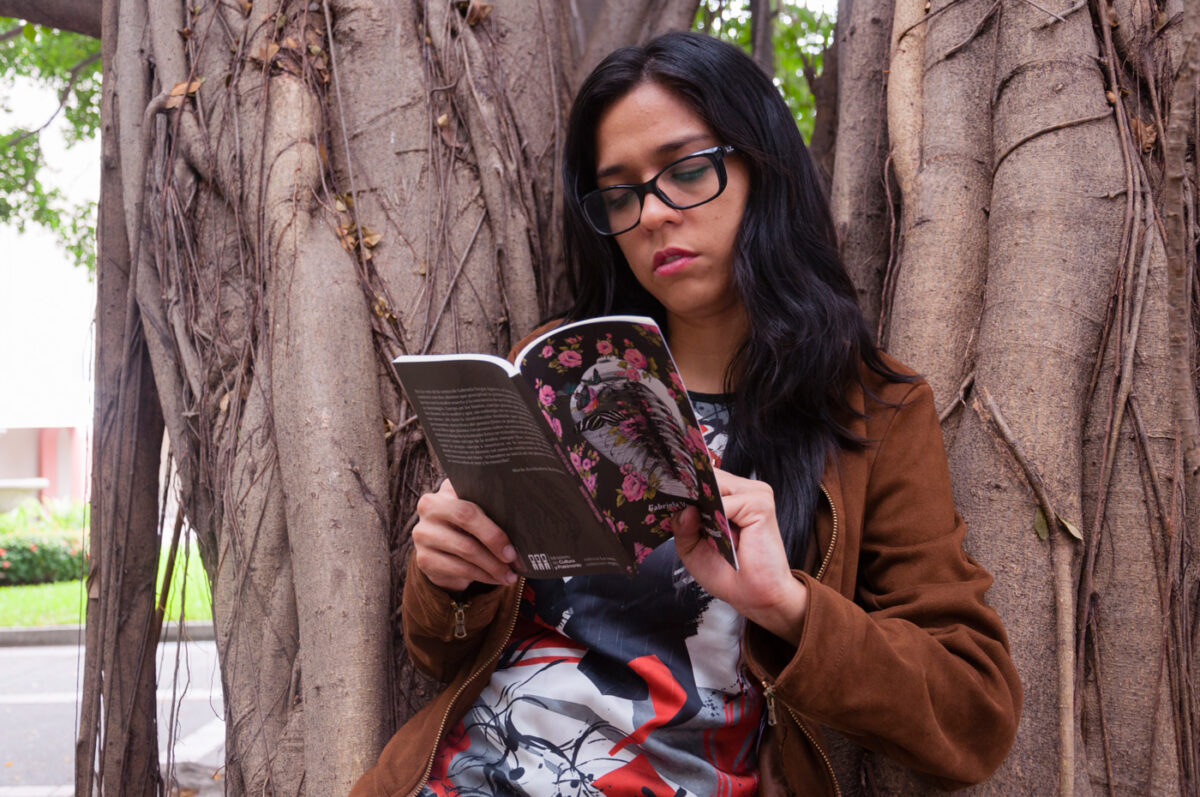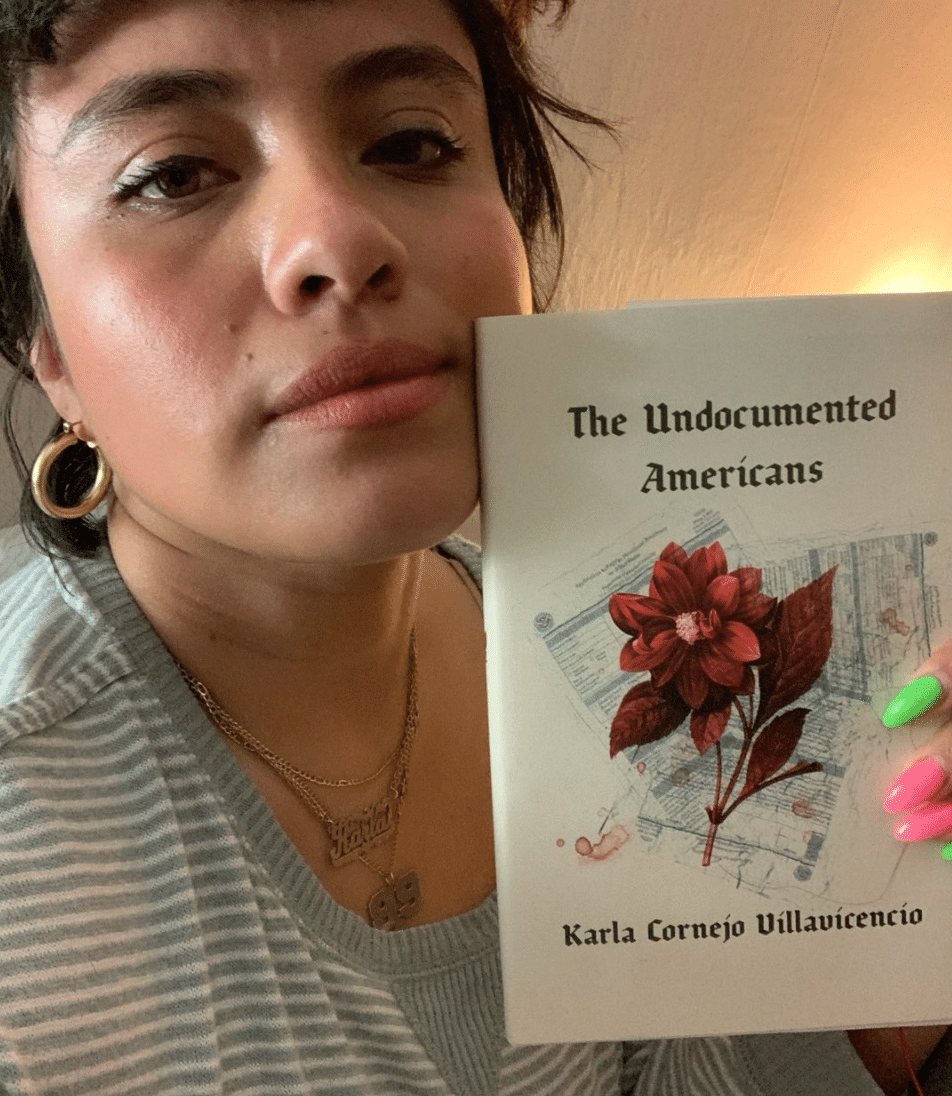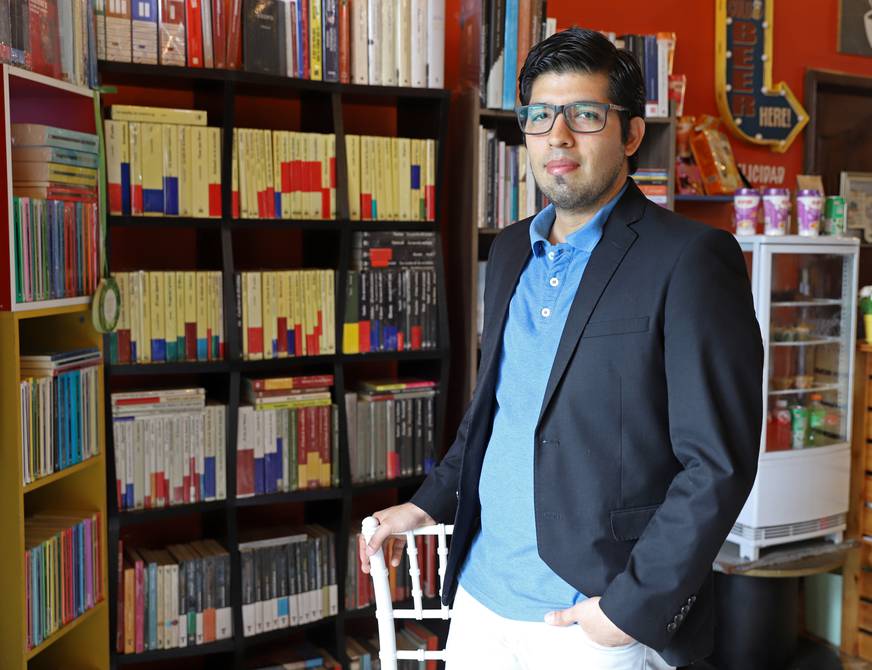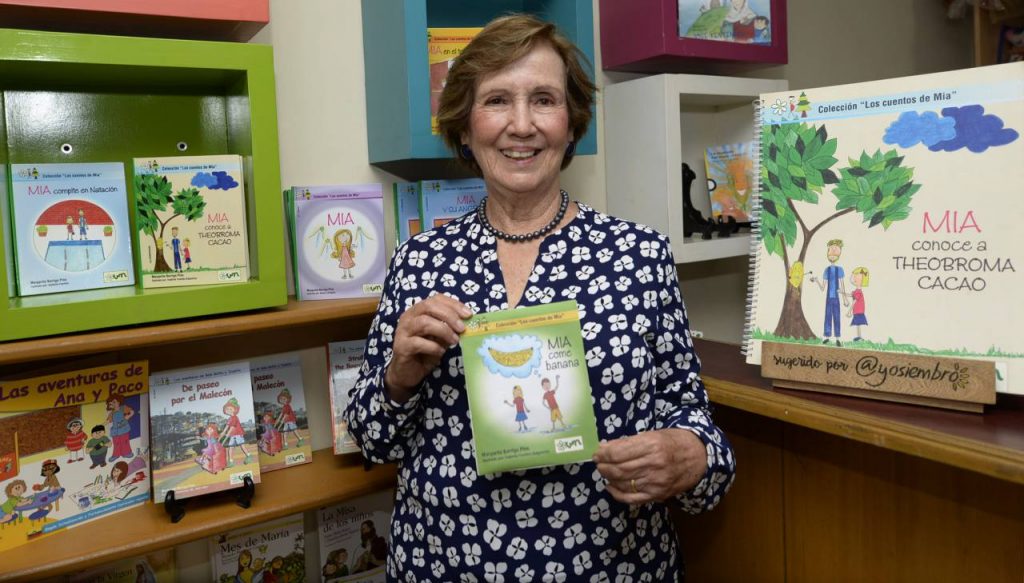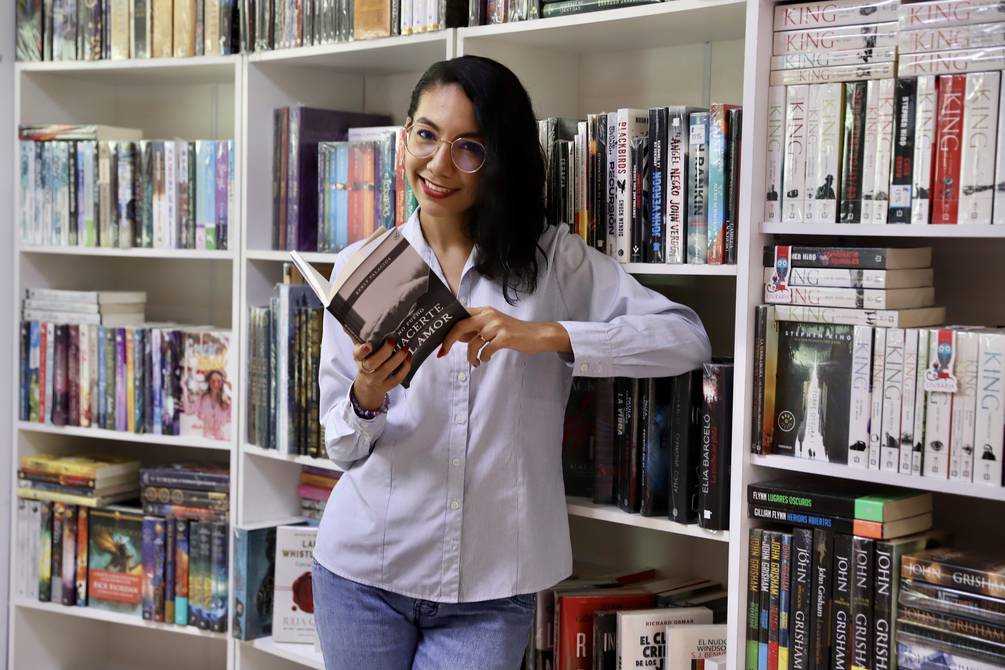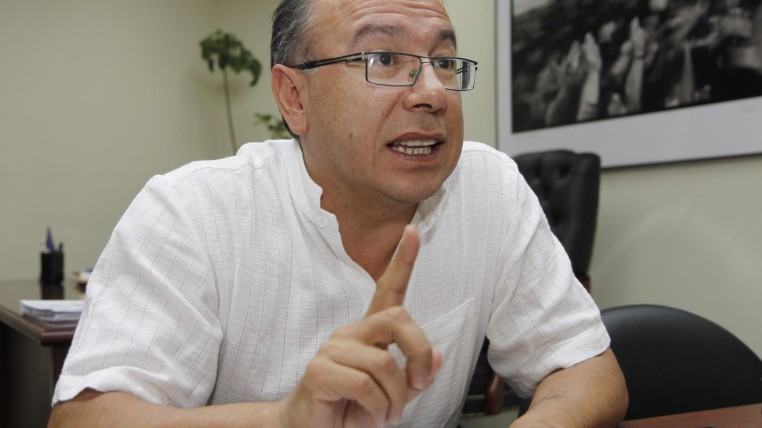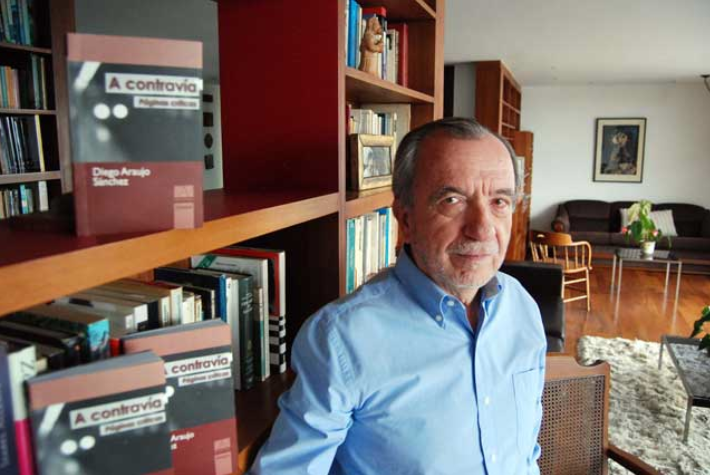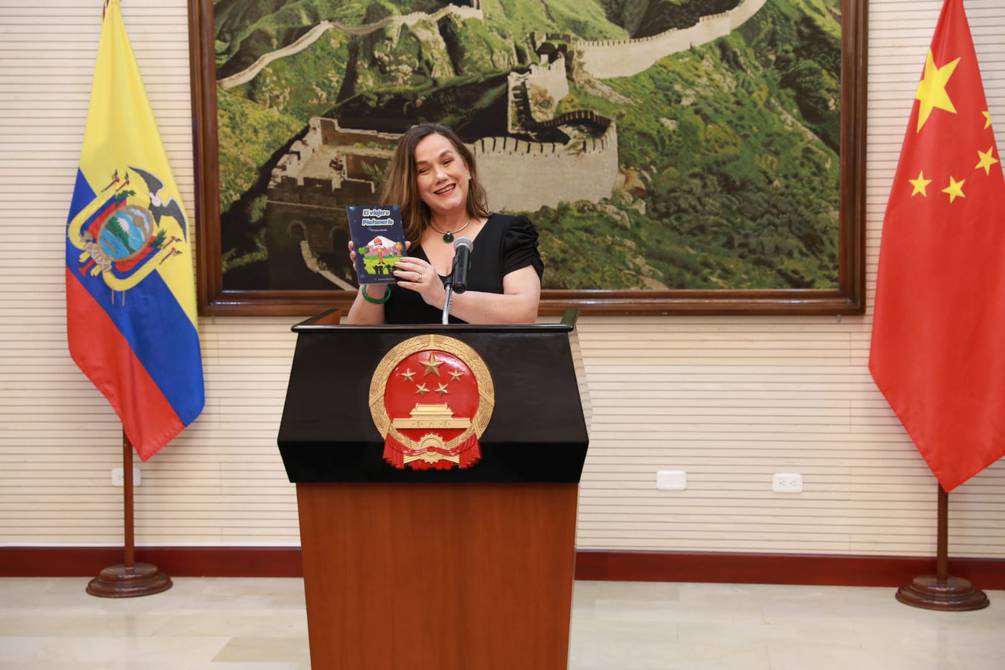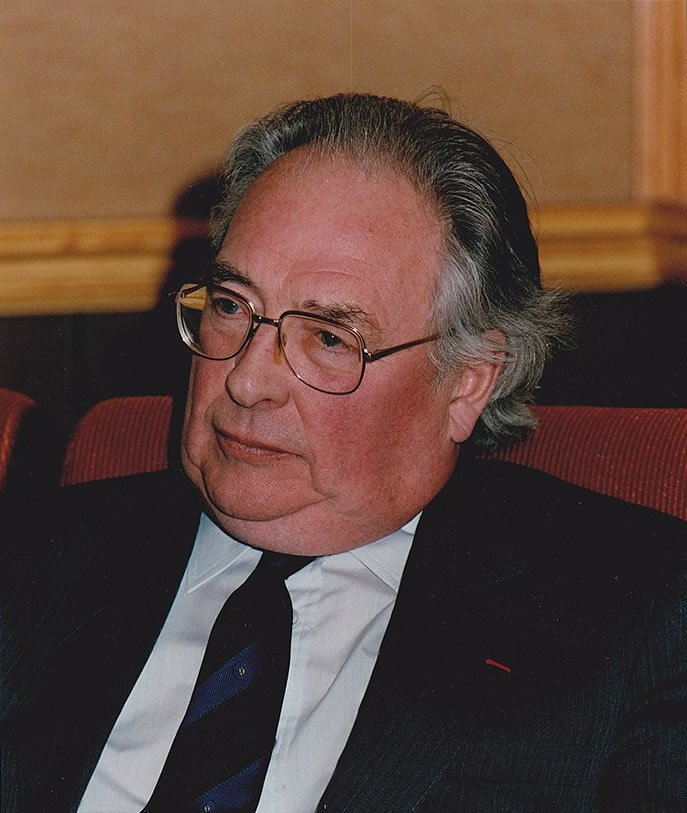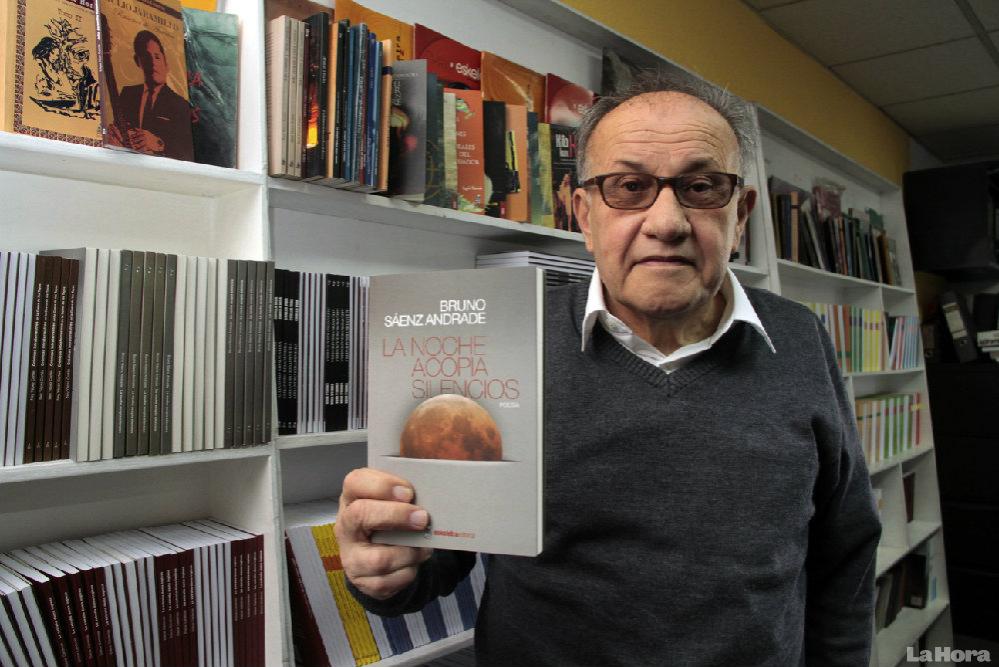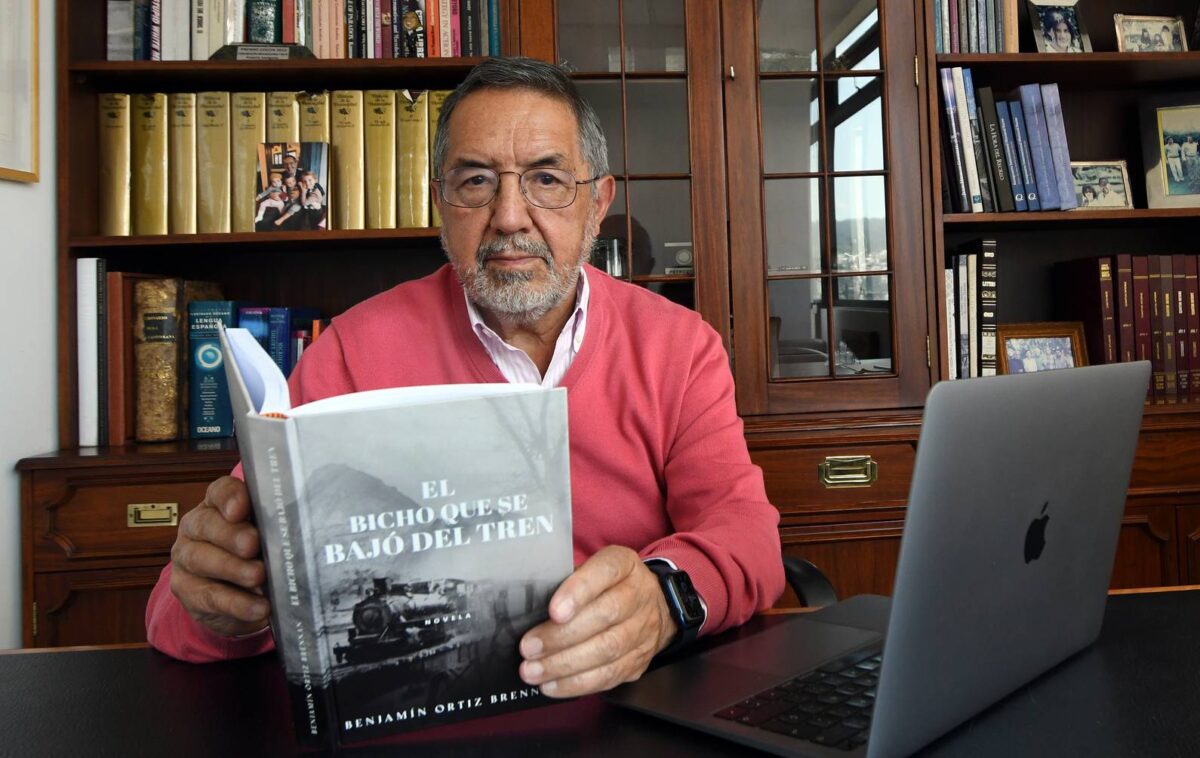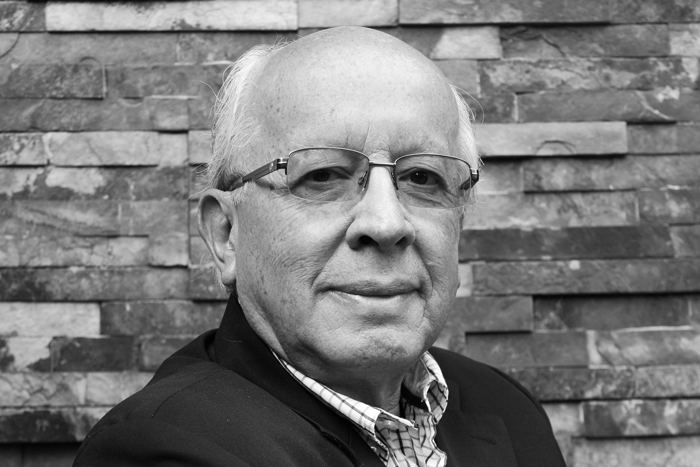Gabriela Vargas Aguirre (Guayaquil, 1984) is an Ecuadorian poet. Her first collection of poems, “La ruta de la ceniza” (2017), which dealt with her mother’s death, received critical acclaim. She was able to publish the book thanks to a competitive grant from the Ministry of Culture and Patrimony. She has participated in various poetry festivals in Ecuador and other South American nations and her poems have been published in several anthologies. In 2020 her second poetry collection, “Lugares que no existen en las guías turísticas,” won the Vicente Huidobro International Poetry Prize and was published in Spain in 2021 by Valparaíso Ediciones.
Continue reading “Gabriela Vargas”Author: richard
Karla Cornejo Villavicencio
Karla Cornejo Villavicencio (1989) is a writer from Ecuador. In 2020 she published, “The Undocumented Americans,” which was among Barack Obama’s favorite books of 2020, it was also a finalist for both the National Book Award and the National Book Critics Circle Award. Writing for The New York Times, Caitlin Dickerson called the book “captivating and evocative.” Cornejo graduated from Harvard in 2011, becoming the first undocumented immigrant to do so. She was an Emerson Collective fellow, and as of September 2020 is a Ph.D. candidate in the American studies program at Yale. Her articles have been published in The Atlantic, Elle, Glamour, n+1, The New Republic, The New York Times, and Vogue.
Continue reading “Karla Cornejo Villavicencio”Gastón Calderón
Gastón Calderón Villegas (Guayaquil, November 25, 1993) is an Ecuadorian writer of young adult novels. He has published over 8 books, including “Primero es ella,” which made him the best-selling author in Ecuador of 2019. In 2023, he was honored with the prestigious Gold Medal for Cultural Diffusion by the association La Renaissance Française in Ecuador. The medal was presented to Calderón on January 4th at La Madriguera bookstore by Joëlle Cattan, a French writer and representative of the association.
Continue reading “Gastón Calderón”Margarita Barriga
Margarita Barriga Pino (Guayaquil, 1940) is an Ecuadorian children’s literature author. She is married to Armando Baquerizo, with whom she has eight children and twenty grandchildren. She took Theater and Pedagogy courses and was a teacher of Puppetry and Education at the Santiago de Guayaquil Catholic University for fifteen years. She has performed puppet theater and theater plays. She has owned a bookstore since 1985, where she teaches reading encouragement workshops for children and teachers.
Continue reading “Margarita Barriga”Kerly Palacios
Kerly Palacios Escobar (Guayaquil, 1994) is an Ecuadorian writer and poet. She has published two poetry collections, “El desvelo de mis versos” (2018) and “Secuelas” (2020). In 2021, she published her first novel, “No puedo hacerte el amor,” an erotic romance about a couple who cannot consummate their marriage. She claims to have written it in just four hours in December 2020, while character development and editing took another six months. She has taken part in the International Book Festival of Guayaquil.
Continue reading “Kerly Palacios”Orlando Pérez
Orlando Pérez Sanchez (Quito, 1963) is an award-winning journalist and writer from Ecuador. In 2002 he published, “La celebración de la libertad,” a collection of interviews with nine writers from Latin America and Spain. In 2013 he published a novel, “La ceniza del adiós,” and a nonfiction book, “Wikileaks en la mitad del mundo,” about the U.S. diplomatic cables in Ecuador published by Wikileaks. In 2014 he co-authored “Caso Chevron: la verdad no contamina” with Nelson Silva.
Continue reading “Orlando Pérez”Diego Araujo Sánchez
Diego Araujo Sánchez (Quito, October 14, 1945) is a writer, journalist, and professor from Ecuador. He has been a professor of language and literature at the Pontifical Catholic University of Ecuador for thirty years, and a visiting professor at the Department of Classical and Modern Languages at the University of New Mexico in the United States. For 30 years, he was the deputy director of the Quito newspaper HOY, where he wrote a weekly opinion column. He also wrote a column for the newspaper El Comercio. He has written numerous articles and essays, as well as two historical-political novels, “Los nombres ocultos” (2016) and “Las secretas formas del tiempo” (2021). He is a corresponding member of the Royal Spanish Academy and a numerary member of the Ecuadorian Academy of Language, where he has served as treasurer since September 2017.
Continue reading “Diego Araujo Sánchez”Verónica Bonilla
Verónica Bonilla (Quito, June 11, 1962) is a prolific children’s book author, illustrator, and graphic designer from Ecuador. Her books have been published in Spanish, English and Chinese. She received China’s highest honor for a foreign writer, the 15th Special Book Award of China 2021, for her book Planatario en China, which was published in both Spanish and Chinese in 2019.
Continue reading “Verónica Bonilla”Bernard M. Dulsey
Bernard Martin Dulsey (Chicago, IL, February 27, 1914 – San Clemente, Orange, California, November 4, 1992) was an American professor, scholar, editor, and translator. In 1964, Southern Illinois University Press published “The Villagers,” an authorized English translation by Bernard M. Dulsey of Ecuador’s most famous novel, “Huasipungo,” in collaboration with its author Jorge Icaza. Mr. Dulsey was a professor emeritus of the foreign language and literature department of the University of Missouri-Kansas City. He earned his doctorate at the University of Illinois and worked as a prose editor for the Library of Congress’ annual Handbook of Latin American Studies. He was also an associate editor of the Kansas City Review and contributed to a number of scholarly journals in the United States and abroad.
Continue reading “Bernard M. Dulsey”Claude Couffon
Claude Couffon (Caen, Normandy, France, May 4, 1926 – December 18, 2013) was a renowned Spanish-to-French translator, French poet, Sorbonne Université professor, and an expert in Spanish and Latin American literature. In 1960, Couffon translated Jorge Icaza’s 1958 novel “El Chulla Romero y Flores” into French as “L’homme de Quito.” It was serialized in Les Lettres Francaises, (Nº833, July 14–20, 1960). French publisher Éditions Albin Michel released “L’homme de Quito” as a book in 1993. Couffon’s translations were instrumental in promoting Spanish-language writers in France. He translated the works of several Nobel laureates, including Spain’s Camilo Jose Cela, Colombia’s Gabriel Garcia Marquez, Chile’s Pablo Neruda, and Guatemala’s Miguel Angel Asturias. In 2003, Claude Couffon translated Ecuadorian author Rocío Durán-Barba’s novel “París sueño eterno” (1997).
Continue reading “Claude Couffon”Ecuador’s National Anthem Lyrics
Translated to English by Richard Gabela on April 19, 2024, from the original work “Himno Nacional del Ecuador” (1865) by Juan León Mera (1832-1894) of Ambato, Ecuador.
Ecuador’s National Anthem Lyrics
Chorus:
Hail, O Homeland, a thousand times hail!
O Homeland, glory to you! Your heart overflows
with joy and peace, and your radiant face
shines brighter than the sun we behold.
I
Indignant, your children rose against the yoke
imposed by Iberian audacity,
against the unjust and horrendous suffering
that fatally weighed upon you.
They raised a holy voice to the heavens,
a voice of noble and unmatched commitment,
to avenge you from the bloody monster,
to break that servile yoke.
Chorus
II (official verse)
The first, the sons of the soil
which Pichincha proudly adorns,
acclaimed you as their eternal lady,
and shed their blood for you.
God saw and accepted the sacrifice,
and that blood was the fruitful seed
of other heroes whom the world, astonished,
saw rise around you by the thousands.
Chorus
III
Against the iron arm of these heroes,
no land was invincible,
and from the valley to the highest sierra,
the roar of battle could be heard.
After the battle, victory flew,
freedom followed the triumph,
and the lion, broken,
was heard roaring in helplessness and despair.
Chorus
IV
At last, Spanish ferocity yielded,
and today, O Homeland, your free existence
is the noble and magnificent heritage
given to us by felicitous heroism.
We received it from paternal hands,
let no one attempt to wrest it from us now,
nor does any foolish or audacious one
wish to provoke our vengeful anger against themselves.
Chorus
V
Let no one, O Homeland, attempt it. The shadows
of your glorious heroes watch over us,
and the valor and pride they inspire
are omens of triumphs for you.
Bring forth the iron and the fulminating lead,
for at the thought of war and vengeance
awakens the heroic strength
that made the fierce Spanish succumb.
Chorus
VI
And if new chains are prepared
by the unjustness of barbaric fate,
great Pichincha! may you foresee the death
of the homeland and its children in the end.
Sink swiftly into your deep entrails
all that exists on your land. Let the tyrant
tread only ashes and in vain
seek any trace of being beside you.
Chorus
Translator’s Note: The decision to translate the national anthem of Ecuador, penned by Juan León Mera, a revered writer and poet known for his contributions to Ecuadorian literature, including his influential novel “Cumandá” published in 1879, holds profound cultural and historical significance. Set to music by Antonio Neumane in 1870 and adopted in 1948, this anthem embodies the Ecuadorian spirit of resilience and patriotism, celebrating the nation’s journey towards freedom and sovereignty. Through Mera’s evocative lyrics and Neumane’s stirring composition, the anthem serves as a powerful symbol of unity and pride, inspiring generations of Ecuadorians to stand tall in the face of adversity.
Original Spanish Version
Himno Nacional del Ecuador
Coro:
¡Salve, Oh Patria, mil veces! ¡Oh Patria,
gloria a ti! Ya tu pecho rebosa
gozo y paz, y tu frente radiosa
más que el sol contemplamos lucir.
I
Indignados tus hijos del yugo
que te impuso la ibérica audacia,
de la injusta y horrenda desgracia
que pesaba fatal sobre ti,
santa voz a los cielos alzaron,
voz de noble y sin par juramento,
de vengarte del monstruo sangriento,
de romper ese yugo servil.
Coro
II (verso oficial)
Los primeros, los hijos del suelo
que, soberbio, el Pichincha decora,
te aclamaron por siempre señora
y vertieron su sangre por tí.
Dios miró y aceptó el holocausto
y esa sangre fue germen fecundo
de otros héroes que atónito el mundo
vió en tu torno a millares surgir.
Coro
III
De estos héroes al brazo del hierro
nada tuvo invencible la tierra,
y del valle a la altísima sierra
se escuchaba el fragor de la lid.
Tras la lid, la victoria volaba,
libertad tras el triunfo venía,
y al león destrozado se oía
de impotencia y despecho rugir.
Coro
IV
Cedió al fin la fiereza española,
y hoy, oh Patria, tu libre existencia
es la noble y magnífica herencia
que nos dio el heroísmo feliz.
De las manos paternas la hubimos,
nadie intente arrancárnosla ahora,
ni nuestra ira excitar vengadora
quiera, necio o audaz, contra sí.
Coro
V
Nadie, oh Patria, lo intente. Las sombras
de tus héroes gloriosos nos miran,
y el valor y el orgullo que inspiran
son augurios de triunfos por ti.
Venga el hierro y el plomo fulmíneo,
que a la idea de guerra y venganza
se despierta la heroica pujanza
que hizo al fiero español sucumbir.
Coro
VI
Y si nuevas cadenas prepara
la injusticia de bárbara suerte,
¡gran Pichincha! prevén tú la muerte
de la Patria y sus hijos al fin
Hunde al punto en tus hondas entrañas
cuanto existe en tu tierra, el tirano
huelle solo cenizas y en vano
busque rastro de ser junto a ti.
Coro
Miguel Álava Alcívar
Miguel Álava Alcívar, sometimes Miguel Alavalcívar (Portoviejo, 1988) is an Ecuadorian novelist, poet and philosophy professor. He has lived in Guayaquil for many years. His novels include Universos paralelos (2004), Amada inmortal (2005), El mundo contado al revés (2011) and El Trapecista (2012), which he has referred to as his best work. In 2012 he became a member of the Guayas Chapter of the House of Ecuadorian Culture. He is on the editorial team of the International Journal of Social Science and Economics Invention.
Continue reading “Miguel Álava Alcívar”Bruno Sáenz Andrade
Bruno Sáenz Andrade (Quito, September 13, 1944 – Quito, January 11, 2022) was an Ecuadorian writer, poet, essayist and literary critic. He authored numerous books including: “El aprendiz y la palabra,” “Relatos del aprendiz,” “Comedia del cuerpo,” “1944, La promesa y la siega” and “La noche acopia silencios.” A lawyer by profession, in his working life he served as director of the School of Prosecutors in the Public Ministry, as well as Undersecretary of Culture. He was a regular speaker at the House of Ecuadorian Culture, the Benjamín Carrión Cultural Center, and the Rayuela bookstore, among other places. He was an emeritus member of the Ecuadorian Academy of Language since 2014. In 2003 his poetry book “Escribe la inicial de tu nombre en el umbral del sueño” won the Jorge Carrera Andrade Award.
Continue reading “Bruno Sáenz Andrade”Benjamín Ortiz Brennan
Benjamín Ortiz Brennan is an Ecuadorian journalist and writer. He is the author of two well-regarded historical novels: A la sombra del magnolio (2017) and El bicho que se bajó del tren (2021). He has worked as a chronicler for El Tiempo newspaper, news director of Ecuavisa, director of the newspaper Hoy for 17 years, and director of his own strategic communication agency for another 17 years.
Continue reading “Benjamín Ortiz Brennan”Gonzalo Ortiz Crespo
Gonzalo Ortiz Crespo (Quito, October 18, 1944) is an Ecuadorian journalist, essayist, historian and writer. He has written three novels: Los hijos de Daisy (2009), Alfaro en la sombra (2012) and Pecunia non olet (2021), a corruption thriller which made it to Primicia.ec’s 2021 list of “the 10 books by Ecuadorian writers that marked the year.” He is a member of the Ecuadorian Academy of Language and the National Academy of History. He wrote for the newspapers El Tiempo, Hoy, EL COMERCIO and the magazine Gestión. He has worked as a university professor and has held various posts such as secretary of communication, secretary of the administration of President Rodrigo Borja, and councilor of Quito.
Continue reading “Gonzalo Ortiz Crespo”
